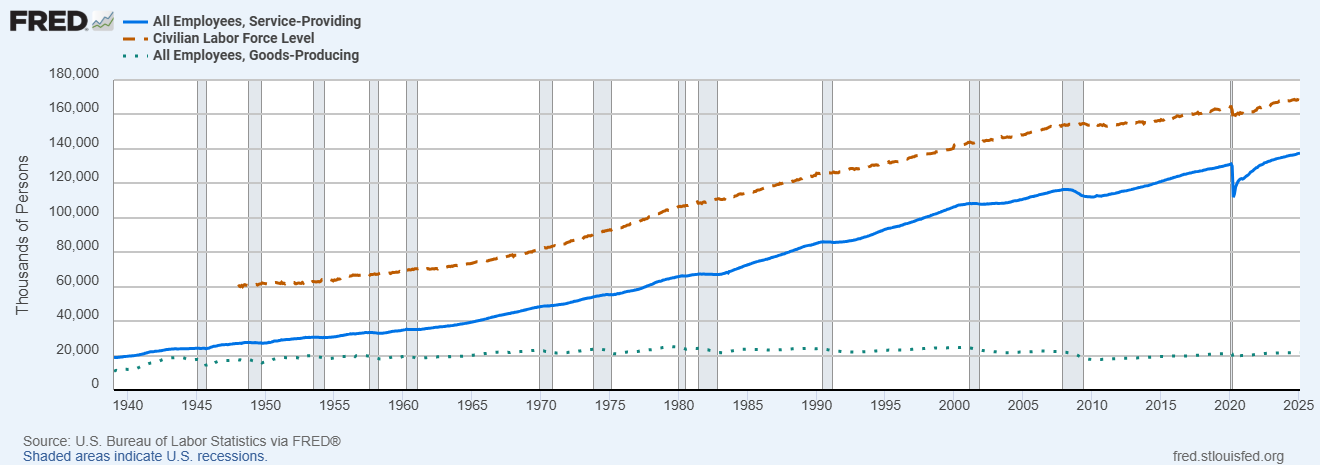Get your assumptions in order
On transitional assistance, string quartets, and why fixating on industrial jobs is a terrible way to help people looking to climb the economic ladder
The state of one's starting assumptions can have an overwhelming effect on the conclusions one ends up drawing. If, for instance, one were to assume that American economic might reached a peak at some point during the heavy industrial era, then that assumption could easily frame the conclusion that some form of "return" to heavy industry might also bring about a "return" of economic glory.
■ But those assumptions would be faulty for two reasons. First, by any reasonable measure, there has been no peak in American economic success: It's grown from generation to generation. That doesn't mean the growth has been evenly distributed; some people, and even some geographic areas, have stagnated. Addressing that stagnation with a good underlying base of growth and some well-targeted policies could do a lot of good -- as could promoting conditions that encourage people to move to where the opportunity is.
■ The second fault in the assumptions would be to think that heavy industrial work is somehow infused with magic. Consider this under-appreciated fact: Roughly since the end of World War II, a majority of American workers have been employed in the service sector. Not just some, and not just a rising number. A majority.
■ This is a natural economic progression. Automation makes it easier to make things. That's been the case on the farm and in the factory alike. Machines do repetitive tasks well at scale, and the amazing productivity of the American agricultural and industrial sectors should be regarded as a massive success story.
■ Services, though, are much harder to automate. And in many cases, they can only be made so efficient: A string quartet doesn't get better by playing Brahms twice as fast or by cutting out the cello. There's only so much by which automation can make a haircut more efficient (otherwise, more people would be buying Flowbees). And if you want to talk to a counselor, your life will not be improved by them conducting sessions with two clients at a time.
■ It's natural, then, for employment in the agricultural and manufacturing sectors to decline, while the service sector expands. Finding ways to make prosperity reach more people in more places isn't a matter of trying to revive a fictitious past. It's a matter of dealing with the facts as they are, which means concentrating on matters like the dignity of work, life-long learning and skill development, and transitional assistance when old jobs fade and new ones need to be found.
■ America has been a majority-service-sector economy since the 1950s. Before that was the mobilization for a great war, and before that was a Great Depression. There are no glory days at any point in the last century when industrial employment led the way. Any assumption leading otherwise is a path to false promises.



